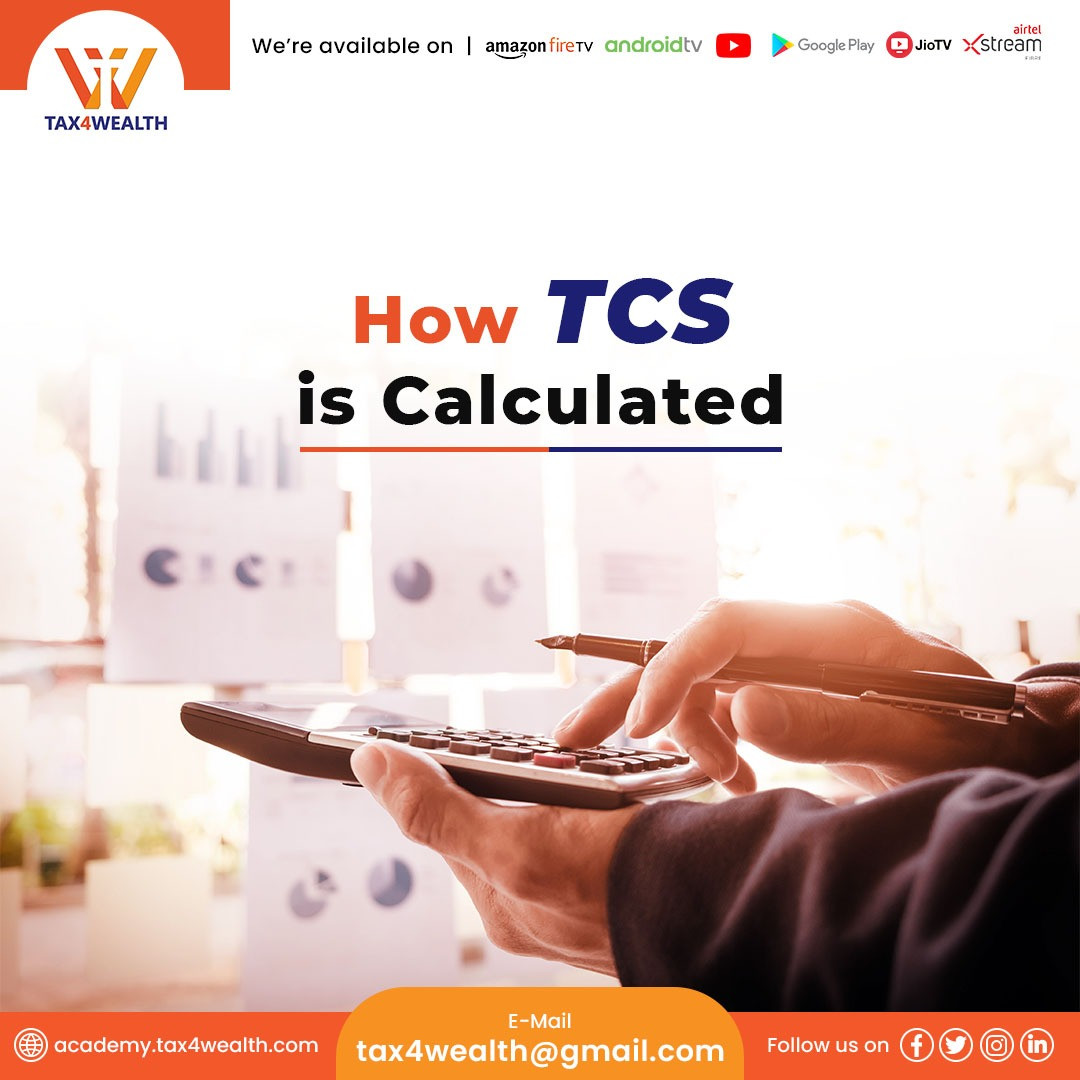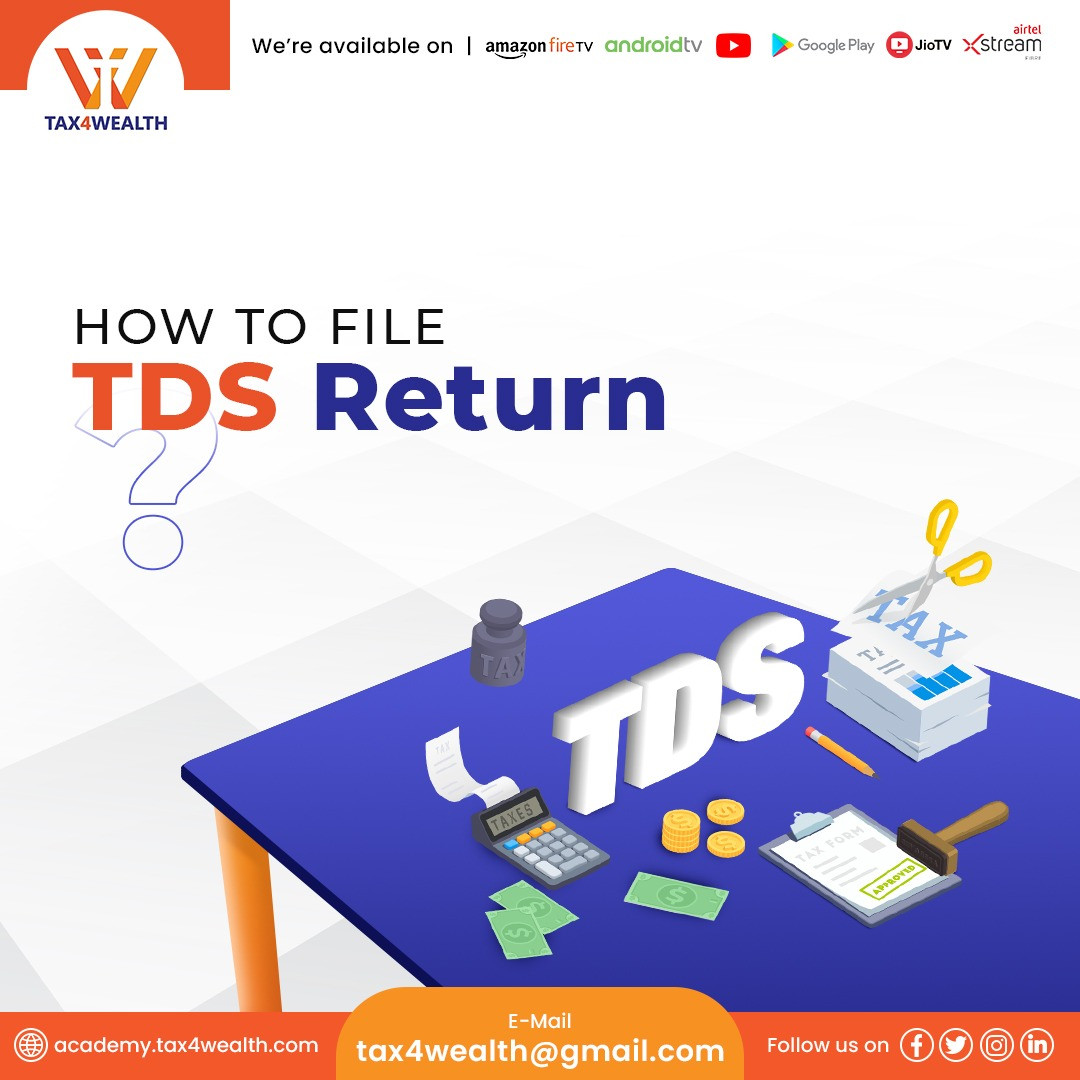
How TCS is Calculated?
Introduction:
The complete form of TCS is Tax collected at Source. The Indian Government of India has decided to collect TCS from the customers for the purchase of a product or service basing on certain conditions. In simple words, TCS will be calculated on the proceeds of sale mentioned on the invoice and on the full invoice amount. This suggests that, TCS is calculated basing on the following aspects;
- Total Invoice Amount
- GST applicable on the Invoice Amount
This can be better analyzed with the help of an illustration. For instance, the total invoice amount is Rs.1, 000 and 18% of GST will be applicable on the same. Thus, the total invoice amount will be Rs. 1, 180. The Sales Proceed will be collected from the customer. These days, the government is expecting the seller to collect TCS on the total Sales Proceeds i.e. Rs. 1,180.
How to calculate TCS on scrap sale under GST?
In business for some transactions, it is expected by the government that taxes must be withheld from the total payments and the same must be paid directly to the government. The examples of such transactions are E-commerce consumer sales and Scarp sales.
The TCS calculation of scarp sale can be better analyzed with the help of an illustration.
Generally, a taxpayer who does online sales on any E-commerce portal or sells a scrap or sell any other service, he or she has to be charged with TCS of 1% on such selling price. Now, the first thing that has be considered is to decide the selling price which is a confusing factor for most of the tax professionals including Charted Accountants, Auditors and Company Secretary as each of them treat the aspect in a different manner.
Thus, the most simple and safest is adopted while calculating TCS. TCS is calculated basing on the approach of where the tax has been added to total scrap amount.
For instance, if the selling price of scarp is Rs. 10,000 and GST applicable is 12%. Then, the calculation will be as follows;
Scrap Value Rs 10,000
GST 12% Rs . 1,200
Selling price Rs. 11,200
Hence, the selling price or invoice amount will be Rs. 11,200. Accordingly, the TCS will be calculated in the aforesaid amount. In simple words, TCS of 1% will be charged on the invoice amount of selling price i.e. Rs. 11,200. The calculation of the same is provided below;
Rs. 11,200 X 1%= Rs. 112
This amount will be withheld from the total payment. Again, TCS can be calculated on scrap value too. Accordingly the total invoice value will be Rs. 11,312.
For new e-commerce companies as well the rate of TCS is 1% and the transactions are same as per the provisions of the Government of India. The government has extended this TCS rate for E-commerce sector as well.
Apart from that a separate clause has been added in the GST law for all such E-commerce portals or companies including shopclues.com, ebay.com, Amazon.com, flipkart.com and snapdeal.com etc. These companies are liable for deduction of TCS at the rate of 1% from each transaction made and deposit the same to the government. They have to deposit the TCS amount by 10th of next month that has been deducted as TCS.
It is to be noted that all the seller/trader selling goods and/or service online are required to get themselves registered under GST even though their annual turnover does not exceed Rs. 20 Lakh to claim the tax deduction by the E-commerce operators.
How and when to charge TCS from buyer?
In case the total turnover amount is Rs. 10 crore and the sale transaction with excess of Rs. 50 lakh with the buyer will provide an impression that the provision under Section 206 (1H) is intended to cover the B2B transactions.
There are two alternatives applicable for deduction of TCS in respect of the buyer. The details whereof are provided below;
Alternative 1
The amount of TCS can be collected through charging the invoice. By inserting a certain line of item in the invoice charged TCS by stating to pay for the remit extra TCS amount at the rate of 0.075% on Invoice Value (Including the cost plus GST).
In the aforesaid case, seller as well as buyer required to adopt the proper accounting process as the payable and receivable for these amounts. It is to be noted that in case the payment is made in the upcoming financial year, the obligation for payment of TCS may not be applicable on the seller as well as buyer as a result of payment breaching collection as per the prescribed threshold in the financial year. In such cases, one needs to keep track of such records and write off and reconcile accordingly with the liability.
Alternative 2
Alternatively, the amount of TCS can also be collected by charging through debit note:
The logic for issuing debit note may be reason that debit note can be issued at the time of payment thus it can be charged against the eligible cases. Apart from it is hassle free to write off as mentioned earlier. However, in case a certain series of debit note numbers may be required to ensure that the aforesaid debit notes must not create any issue in respect of compliances under GST.
This can be analyzed with the help of an illustration. The details whereof are provided below;
Sale of Goods from buyer for Base Amount is Rs. 1, 00,000 and GST is charged at the rate of 18% i.e. Rs. 18,000
|
At the invoice time |
Debit |
Credit |
When payment is received |
Debit |
Credit |
|
Customer A/c |
118,089 |
|
Bank A/c |
118,089 |
|
|
Sales A/c |
|
100,000 |
Customer A/c |
|
118,089 |
|
GST Output A/c |
|
18,000 |
TCS (Sale of Goods) A/c |
89 |
|
|
TCS (Sale of Goods) A/c |
|
89 |
TCS (Sale of Goods) Payable A/c |
|
89 |
Purchase of Goods from Supplier for Base Amount is Rs. 1, 00,000 and GST is charged at the rate of 18% i.e. Rs. 18,000
|
At the time of Booking of Invoice |
Debit |
Credit |
When payment is released to Supplier |
Debit |
Credit |
|
Purchase or Expenses A/c |
100000 |
|
Supplier A/c |
118,089 |
|
|
GST Input A/c |
18000 |
|
Bank A/c |
|
118,089 |
|
TCS (Purchase of Goods) Receivable A/c |
89 |
|
TCS (Purchase of Goods) A/c |
89 |
|
|
Supplier A/c |
|
118089 |
TCS (Purchase of Goods) Receivable A/c |
|
89 |
TCS on Advance receipt of payment
The amount received as a sales consideration in advance is liable for TCS deduction under Section 206C (1H). According to the provisions of sub-section (1H) of section 206C of the Act, the aforesaid aspect is applied i.e. receipt of sale consideration. It is to be noted that the provisions of sub section will be applicable on sale consideration including the sale advanced received on or after 1 October 2020 although the sale was carried out prior to 1 October 2020.
Consequently, it will not be applicable on any sale consideration that is received prior to 1 October 2020. A table containing the details of some examples is provided below;
|
Case |
Sales prior to 1 October 2020 |
Sales After 1 October 2020 |
Receipts prior to 1 October 2020 |
Receipts after 1 October 2020 |
Amount for which TCS applicable for Financial Year 20-21 |
Reason |
|
1 |
75 |
25 |
60 |
40 |
40 |
Sales crossed threshold post the date of applicability, therefore TCS on all receipt after 1st Oct 2020 |
|
2 |
25 |
60 |
15 |
70 |
35 |
TCS applicable on Sales Consideration amount exceeding 50 lakhs |
|
3 |
75 |
– |
10 |
65 |
25 |
Trigger is Receipt and not sales. |
|
4 |
25 |
100 |
125 |
– |
– |
Trigger is Receipt and not sales as receipt prior to the date of applicability |
|
5 |
25 |
45 |
– |
45 |
20 |
TCS applicable on Total Sales amount exceeding 50 lakhs |
|
6 |
– |
75 |
75 |
|
– |
Trigger is Receipt and not sales as receipt prior to the date of applicability |
|
|
75 |
– |
– |
75 |
25 |
TCS applicable on Sales Consideration amount exceeding 50 lakhs |
Related News
No comments yet, Be the first to comment.












